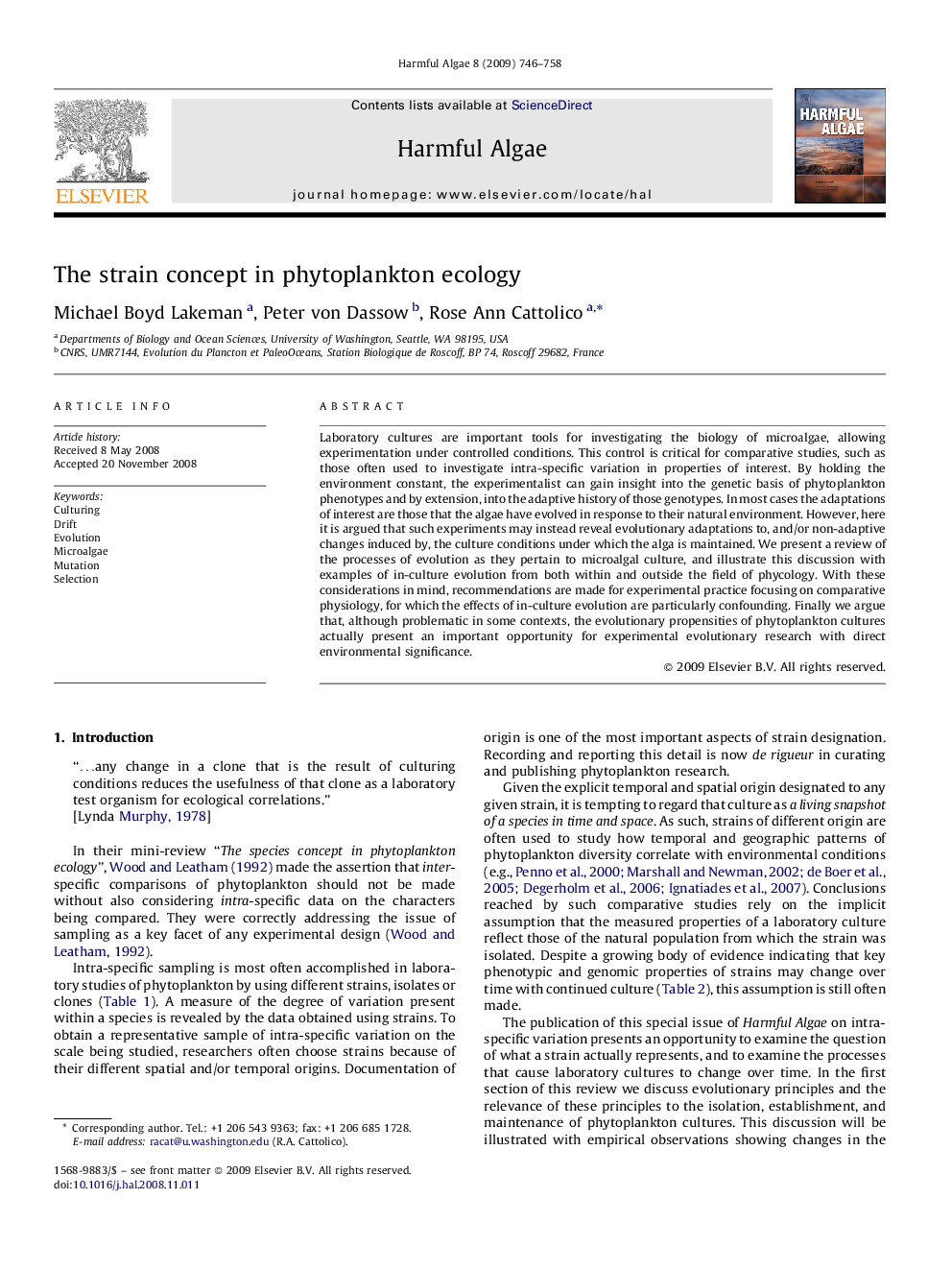| Article ID | Journal | Published Year | Pages | File Type |
|---|---|---|---|---|
| 4545952 | Harmful Algae | 2009 | 13 Pages |
Laboratory cultures are important tools for investigating the biology of microalgae, allowing experimentation under controlled conditions. This control is critical for comparative studies, such as those often used to investigate intra-specific variation in properties of interest. By holding the environment constant, the experimentalist can gain insight into the genetic basis of phytoplankton phenotypes and by extension, into the adaptive history of those genotypes. In most cases the adaptations of interest are those that the algae have evolved in response to their natural environment. However, here it is argued that such experiments may instead reveal evolutionary adaptations to, and/or non-adaptive changes induced by, the culture conditions under which the alga is maintained. We present a review of the processes of evolution as they pertain to microalgal culture, and illustrate this discussion with examples of in-culture evolution from both within and outside the field of phycology. With these considerations in mind, recommendations are made for experimental practice focusing on comparative physiology, for which the effects of in-culture evolution are particularly confounding. Finally we argue that, although problematic in some contexts, the evolutionary propensities of phytoplankton cultures actually present an important opportunity for experimental evolutionary research with direct environmental significance.
